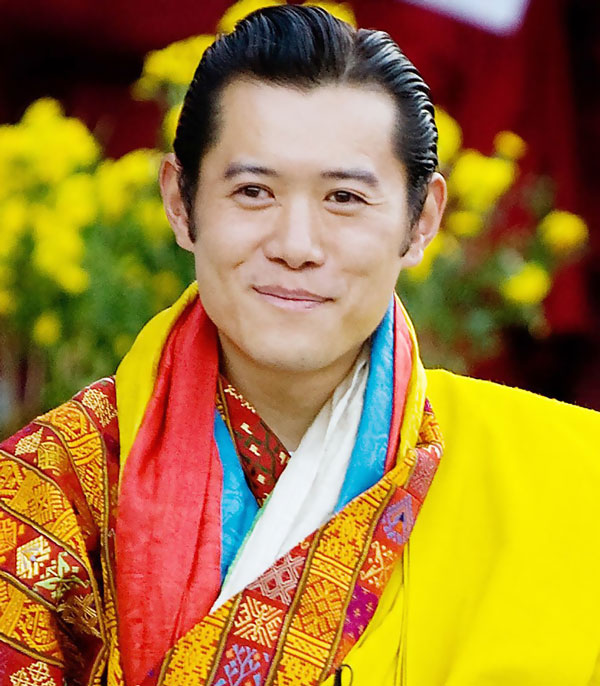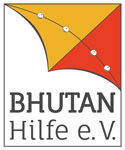The Kingdom of Bhutan
... is a landlocked country in South Asia and borders India to the south and the Tibet Autonomous Region (China) to the north. Bhutan's remoteness from the Western world is largely due to the Himalayan Mountains.
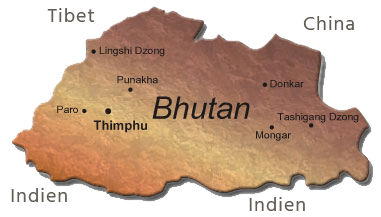
80 percent of the country lies at an altitude above 2,000 m. More than two-thirds of the country is forested. The capital Thimphu is located in the west of the country at an altitude of 2,320 m and is the largest city in the kingdom with about 115,000 inhabitants. The highest mountain in the country is the 7,570 m high Gangkhar Puensum, which has never been climbed by a human being.
Bhutan is very sparsely populated with about 800,000 inhabitants. Two thirds of the population live from agriculture and animal husbandry. Bhutan has retained a rural character without industrial facilities. Over 80 percent of Bhutanese farmers own their own land.
The rectangular, diagonally divided national flag of Bhutan shows a white dragon in its center. The upper, yellow part of the flag represents the king's secular power, while the lower, orange part represents Buddhism. The dragon, whose white color symbolizes purity, represents the land of Bhutan, which is called Dzongkha Druk Yul, "Land of the Thunder Dragon," in the local language. The jewels in the claws of the dragon represent wealth and the perfection of the country.
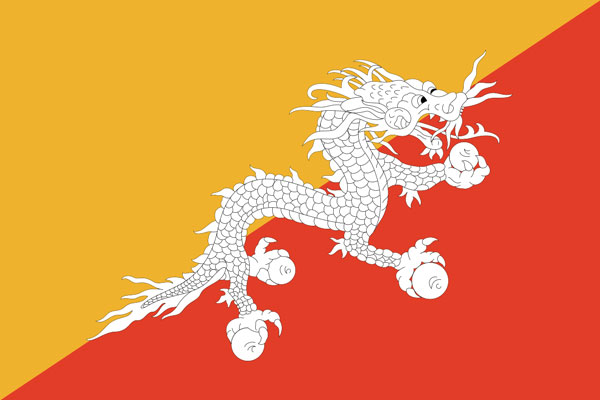
The state religion, to which about 72 percent of the population adheres, is the tantric form of Mahayana Buddhism. Buddhism is omnipresent in Bhutan. Thus, religion, tradition and ancestral customs largely determine Bhutanese etiquette. Its most important features are respect for the faithful and for all religious institutions, as well as wearing of the national dress.
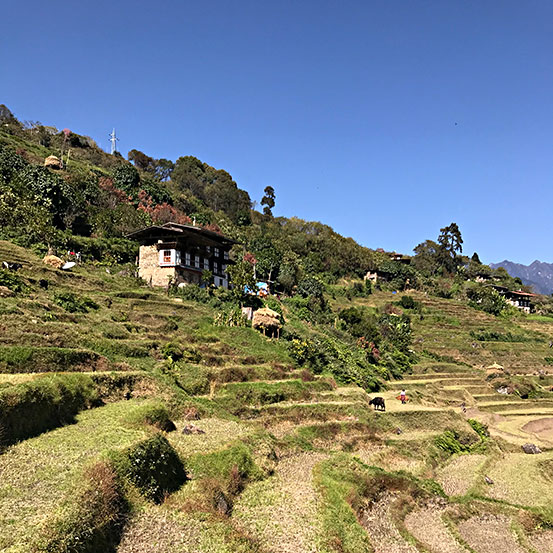
Bhutan has been in a process of modernization since the turn of the millennium. The Bhutanese try to adopt only that which helps them to improve the standard of living and helps to develop the country within the framework of its own traditions, without destroying the environment. The emphasis on traditional values is as much an expression of a well-considered government policy as is the effort to achieve social and economic progress. This is the basis for the concept of Gross National Happiness, as the fourth king, Jigme Singye Wangchuck, once called it - as a counter-design to Gross National Product. Bhutan's concept of Gross National Happiness (GNH) is based on four fundamental principles: good governance, sustainable growth, environmental protection and protection of culture.
Bhutan's political system has consisted of a constitutional monarchy since 2008. Head of state Jigme Khesar Namgyal Wangchuck is the 5th king of Bhutan (reign since 2008). A constitution was drafted on the initiative of the fourth king, presented to the people in 2005, and ratified by the 5th king in 2008. In March 2008, a government was democratically elected for the first time. Part of this government is the National Assembly. Elections are held every five years. In 2013 the second and in 2018 the third parliamentary elections were held. The current prime minister is Lotay Tshering of the Druk Nyamrup Tshogpa (DNT) party.
